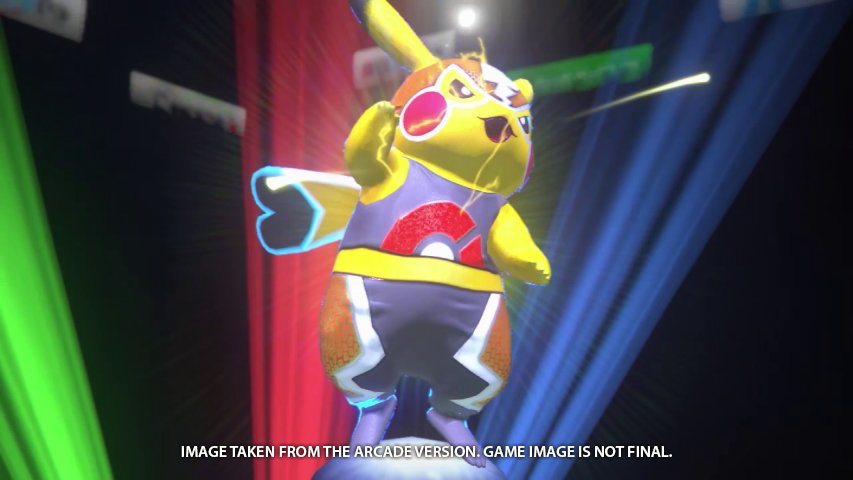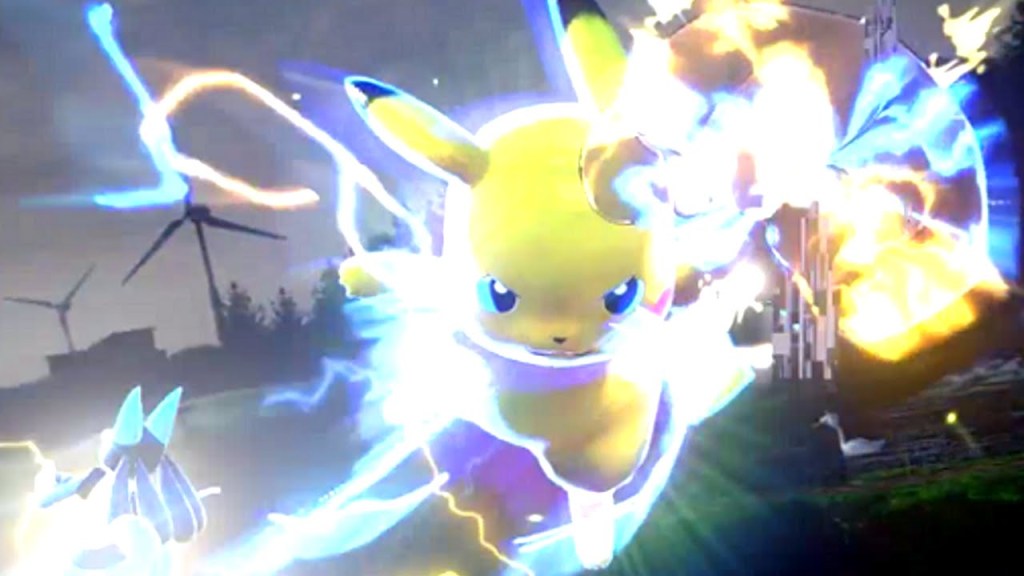Gotta whoop 'em all – Pokémon!
The Pokémon formula has been used, at this point, in as wide of a swash of games as Mario & Co. have been. Aside from the 22 core titles that make up the six generations of the Pokémon franchise, the 722 total critters have made their way to match-3 mobile games, photography challenges, and even the recent rebirth of the Picross puzzle. And despite some of the characters' more malevolent motives, the Pokémon have generally been fairly even-keeled outside of battle. But even though battles have been central to just about every iteration of Pokémon, only two have focused on the actual battle: Pokémon Stadium 2, both for the N64 in 2000 and 2001, respectively.
Leave it to the team at Bandai Namco Entertainment to inject a little more badass into these creatures' daily routine. (Well, for a few specific ones, at least.)
Pokkén Tournament escapes from its Pokéball this Friday, and as a collaboration between the forces behind Tekken, Bandai Namco's celebrated fighting game and Nintendo's valued (and highly-protected) intellectual property, it strangely works both with and without the familiarity of the Pokémon Universe, feeling comfortable when it's around and fresh when it's shirked off.
Pokkén Tournament takes place in the new land of Ferrum, the region of the Pokémon Universe best-known for hosting the Pokkén Tournaments obviously, which is super convenient. Made of five primary locations on the world map, your main goal as the newest Pokkén trainer (to be differentiated from Pokémon trainer) is no less than to be the very best like no one ever was. This turns out to be far easier for Joe or Jane Pokkén, considering there are only a handful of Pokémon that fight (at this time) in Pokkén Tournaments.
Pokkén fighters are divided not by their Pokémon types but by their fighting classification: Standard for well-rounded fighters, Speed for those who rely on quickness and agility, Power for those who like to bruiser their way through, and Technical for trainers who can hone their fighter's timing to chain together impressive, menacing combos. The point where trainers select their Pokémon for the first time should make clear that Pokkén Tournament is not your average, slap-dash Pokémon game. In fact, during my review playthroughs, it occasionally helped to not think of it as a Pokémon game at all, but instead strictly as a fighting game.
That's not to say that the mash-up is seamless all the time. The technical fighting prowess sometimes feels a little awkward coming from soft, cuddly characters such as Pikachu or Gardevoir, while some elements that would normally be cutes-ified for Pokémon get new, minimally-less brash names such as Planning Time, Field and Duel Phases, and Synergy Burst Attacks. It's like peanut butter and jelly, but the peanut butter is 100% organic, and the jelly is a mint jelly normally used on roast lamb, not sandwiches. Something seems odd about it, but we're still really okay with it.
Though Pokkén Tournament owes a lot to its Tekken lineage, a big fuss has been made—on both sides of the argument—that this particular title was designed not for fightsticks, but console controllers such as the Wii U Gamepad and the Wii U Pro Controller. Proponents of the renaissance of the fighting genre as a valid eSports competitor wept and gnashed their teeth. “No fightsticks?” they languished. “How will Pokkén Tournament ever stand next to other modern fighting games with their 500,000 different combo iterations that must be memorized to be worth an iota?!”
Fear not, fighting game elitists. Though the control scheme may have been arranged with a home console and not a $200 on-the-average fight stick, control and attack doesn't venture into the dark, murky area feared by any skilled fight gamer—that of button mashing. That being said, however, I will note that it has been one of the noticeably easier games to pick up and control in the genre in quite some time, with the exclusion of its Nintendo cousin, Super Smash Bros.

Pokkén Tournament will require more from players than button mashing or a lucky button pairing. Timing, speed, and practice will be needed to nail the precision that each Pokémon requires to chain together their moves in devastating combo style. These can be practiced in Ferrum's Practice Dojos, where your adviser, Nia, will present various tutorials as well as a moveset for every Pokkén fighter and the opportunity to practice them. (All against Lucario, for some odd reason. How dare they!) Though the tutorials only help with the most basic concepts—along with making everything lingo (Battle AR? Field and Duel Phase? Come on!)—the practice dojos can actually be quite useful. Going into the review, I was certain that the speedy specimen of Pikachu that had an obsession with luchador masks, Pikachu Libre, was going to be my main squeeze. While exploring the character lineup in the practice dojos, however, is where I started my love affair with Chandelure.
Chandelure, the devious Luring Pokémon, doesn't seem like the most obvious choice for a kickass fighting game character, being as it has no feet and is essentially a ghostly anthropomorphic chandelier. But for a player like myself who prefers fighting game characters with serious aerial skills, but also likes bullying type characters, Chandelure, a Power Pokkén fighter, makes a fantastic fit. Its ranged attacks not only keep opponents at bay but do so with significant power found in its four flickering limbs.
Another area where Pokkén Tournament insists on separating itself from the rest of the Pokémon franchise is that not all Pokémon strategies and philosophies work in Ferrum. While in an average core Pokémon title, the mighty Water Deity Suicune might obliterate a weak Fire-type Braixen, in Pokkén Tournament Braixen stands a damn good chance against the quadruped deity (especially if she can land a couple of her Grab Attacks using that flaming wand of hers). Much like the changes needed for someone like Harley Quinn to be able to defeat the likes of Superman in Injustice: Gods Among Us, in Ferrum it's not as simple as water beats fire, fire beats grass, and so forth. Battles are now won by skill and determination, seeing which trainer can successfully use his or her Pokémon's skills and moves in the Pokkén arena.
Even though it's not afraid to stand out from the rest of the Pokémon core series, there are several familiar attributes it clings to tightly. The idea of always being one's best, in caring and supporting an active, living world, and depending and supporting your friends and allies, as in every other Pokémon title, stand at the forefront of this fighter. As the trainer fights his way up the Ferrum ranks, a mysterious Pokémon makes himself known to the league to disrupt it. Who's that Pokémon? It's Mewtwo… or that's how it looks. Sure, Mewtwo can be… cranky… sometimes, but he's not as dark as a shadow, is he? Or IS he? This Shadow Mewtwo pops up along the way to distract and disparage up-and-coming trainers to advance the thin plot, though not much is generally expected from fighting game stories beyond a slow-motion tear and “the call of revenge.”
The large complaint about Pokkén Tournament, primarily wielded by fighting-genre purists, is that being as it's not a title directly aimed at fighting gamers, such as the most-recent major release in the genre, Capcom's Street Fighter V, it won't be taken as seriously or held up to the same standards as SFV or Marvel vs. Capcom 3 or Mortal Kombat X. Does it have a platform to stand on? I suppose. Pokkén Tournament makes no qualms nor apologies about being accessible to all gamers, whether it's their first venture into fighting games, or if they've been a genre supporter since Street Fighter II.
It was deigned for the everyday home console gamer, not the complicated joypads of arcade cabinet fame. Pokkén's combos will require repeated practice to master, but they're nowhere near the trauma-inducing levels that come along with Darkstalker's Dmitri, Virtua Fighter's Akira, or Ganondorf from Super Smash Bros. for Wii U and 3DS. Ranged attacks and Homing attacks generally resemble each other in minor ways in each Pokémon, and these moves found the building blocks of every character's combo. Any player at any skill level can sit down with Pokkén Tournament for a period of time and have just as much of a chance to win as a long-time fighting genre disciple.
The game also includes online play. I did test my hand at the online battle system, and only found any sort of lag being the result of my temperamental internet connection. That being said, we all know how questionable online servers and matchmaking can be in the first days of a game's release; your mileage may vary. (By the way, Pokkén Tournament also happens to include Tellur Town, home to the title's 1P vs. CPU mode. Did you catch that, Street Fighter V? It's already in the game.)
To the distraught fighting game purist that would criticize Pokkén Tournament as “not a legit fighting game,” I counter with this: Oh my GOD!, could Pikachu Libre get any more damned cute? No! No, it could not. So grab a controller—not a fightstick—and whoop some Pokébutt!
Code provided by publisher. Exclusive to Wii U. Also available as traditional arcade cabinets in Japan.
-
Despite a small roster (at release date), fighters offer wide variety
-
Easy and accessible to new fighting gamers...
-
...while still demanding enough challenge to pull off trickier combinations
-
Influenced by Tekken and Pokémon, but still its own game
-
Fighting game elitists contend it won't be taken seriously in "the scene," but that is still up for debate
-
Limited number of battle stages
-
Seriously, have you seen anything like that Pikachu Libre? Too cute for its own good!
pokken-tournament
-
pokken-tournament #1
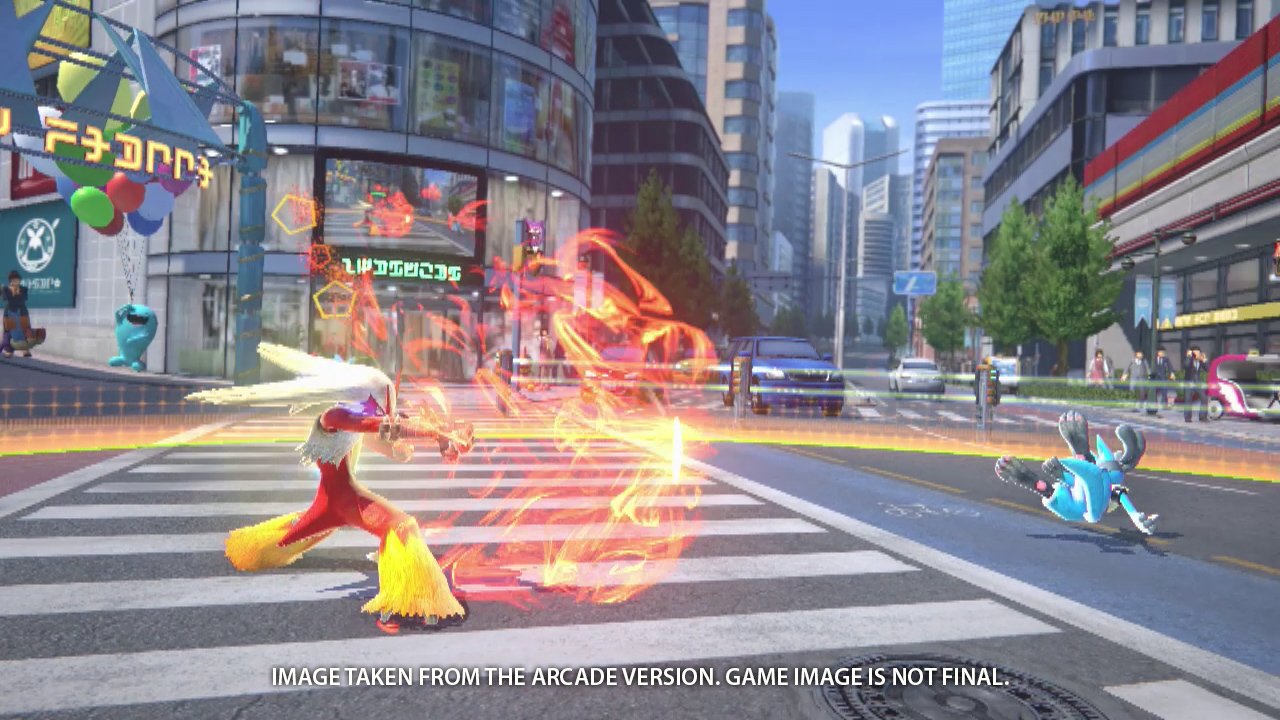
-
pokken-tournament #2
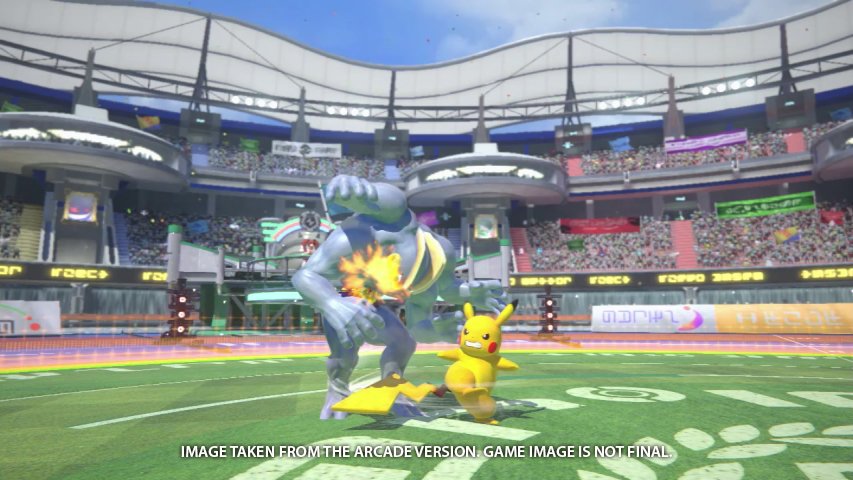
-
pokken-tournament #3
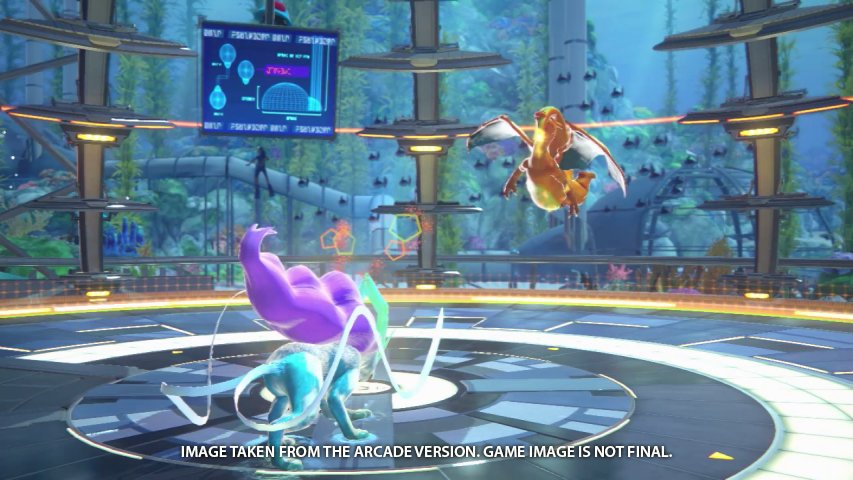
-
pokken-tournament #4
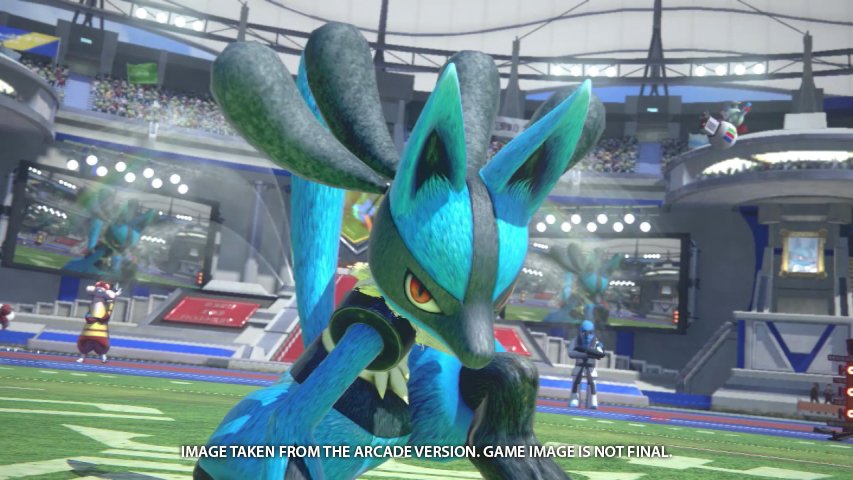
-
pokken-tournament #5
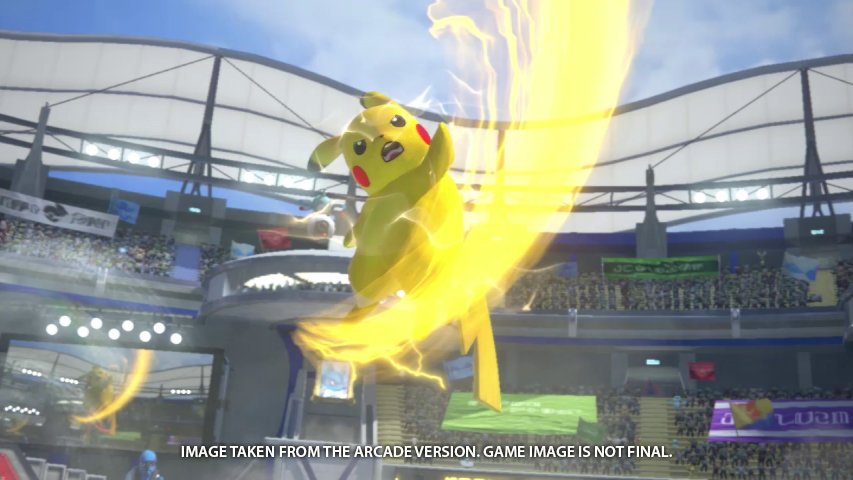
-
pokken-tournament #6
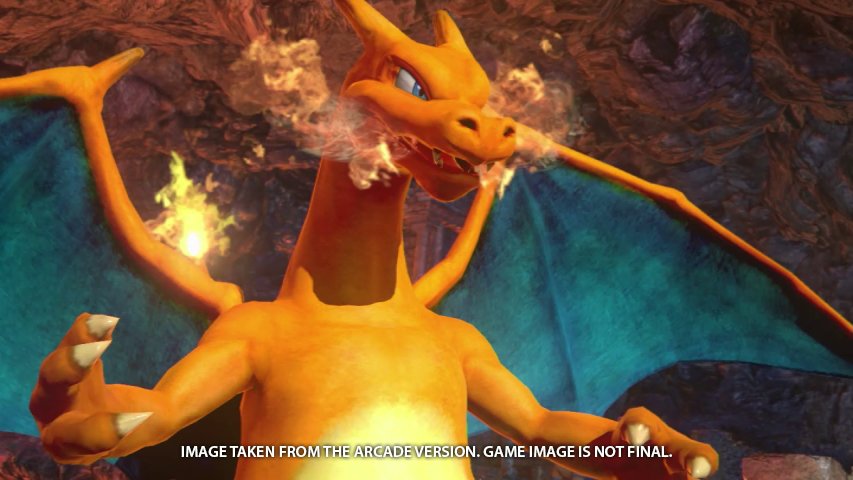
-
pokken-tournament #7
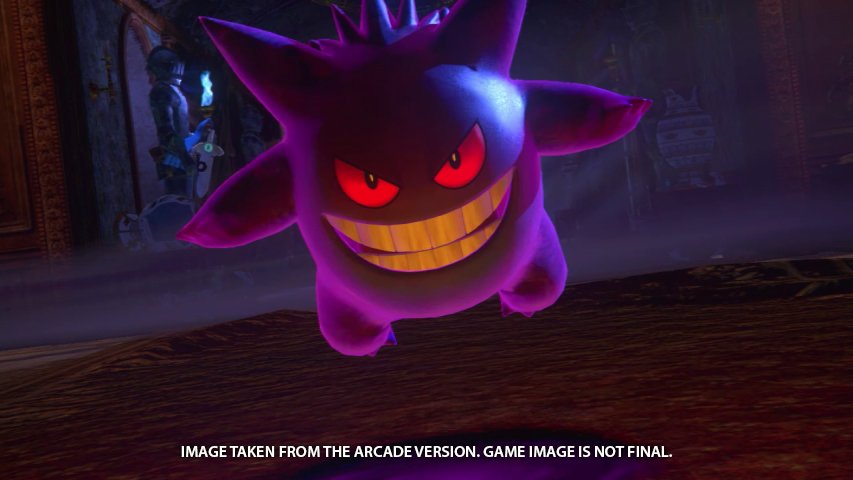
-
pokken-tournament #8
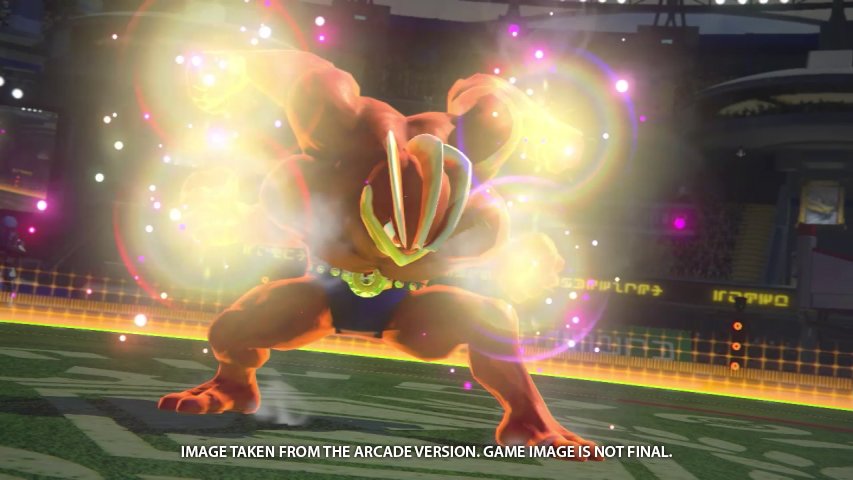
-
pokken-tournament #9
